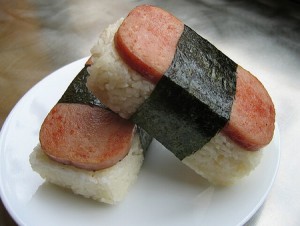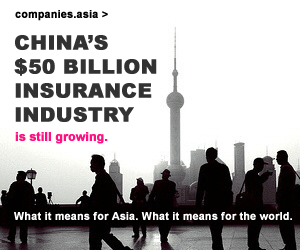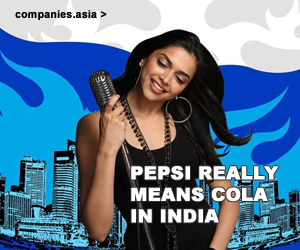
Musubi, Hawaii's Favorite SPAM Treat
Hormel (NYSE: HRL), the maker of SPAM, America’s favorite luncheon meat, has plans to position it as a premium product in China. A blend of chopped pork shoulder, ham, salt, sugar, binders and preservatives like potassium chloride and sodium nitrite, SPAM made its market debut in 1937 and immediately became the number one selling luncheon meat in America. It still remains as one of the top brands in Hormel’s family of grocery products, and accounted for close to 15% of Hormel’s $7.2 billion in sales last year. More than 122 million cans of SPAM products are sold worldwide each year, 90 million in the U.S. alone. Hawaii has the highest consumption per capita for SPAM and the most popular way to enjoy it there is the musubi, a sushi like roll with grilled SPAM, seaweed and rice. SPAM’s overseas revenue has doubled in the past five years as it entered Asian markets such as Japan and South Korea. Burger King restaurants in Tokyo actually have SPAM burgers on the menu.
Hormel currently has 2 factories in China, but only fresh meat products such as pork sausages and pepperoni are made there for retailers and restaurants including Pizza Hut.
Hormel’s plans to introduce SPAM as a premium product into the Chinese market may face cultural obstacles and strong local competitions. While pork has long been a big part of the Chinese diet, consumers can choose from a variety of fresh meats such as horse and beef as well as other locally produced luncheon meats. The pressure is on SPAM to differentiate itself; hence the premium strategy, which taps into the growing Chinese fondness for foreign and more expensive brands. Without a large budget for advertising in China, Hormel’s marketers are focusing on product tasting, in-store posters and online Chinese food recipes using SPAM. The biggest hurdle for Hormel; however, may be its premium pricing strategy. At about US$3.20 a can, SPAM is almost 40% more than the price of other local brands such as Great Wall and Ma Ling.
SPAM and Shark Fin Soup anyone?
Copyright © 2011 Companies.Asia …… All Rights Reserved.



